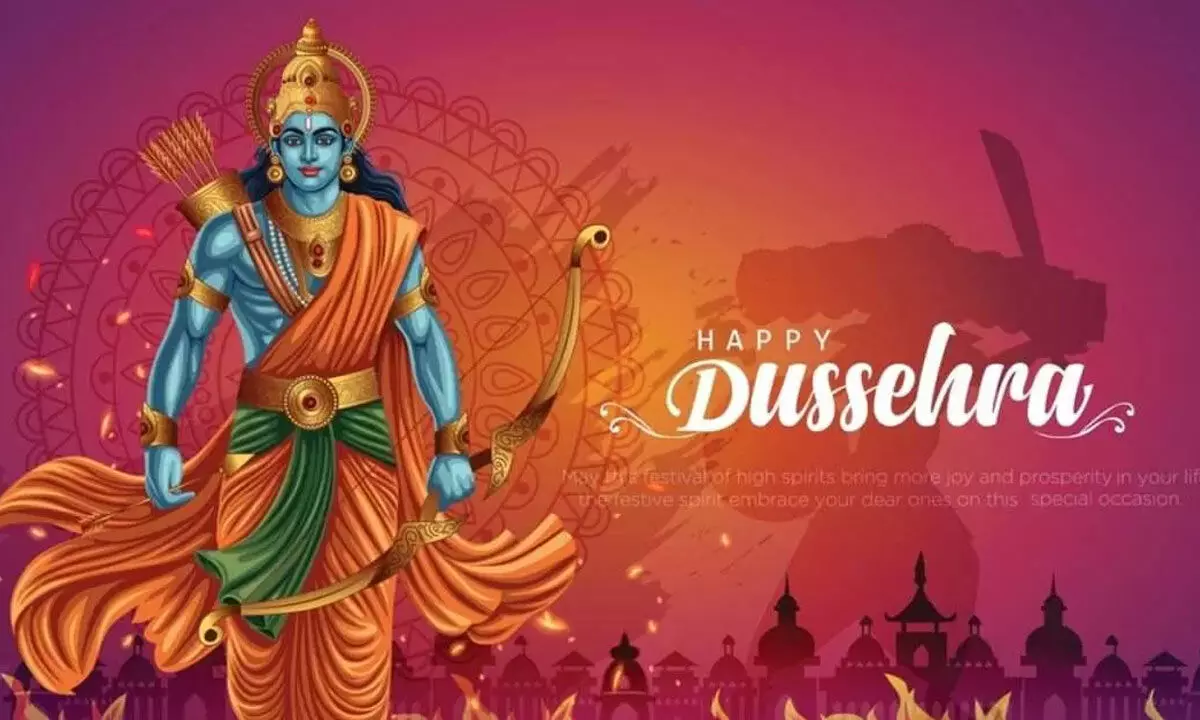Dussehra 2024: Date and How Vijayadashami is Celebrated Across India

Dussehra, also called Vijayadashami, is one of the most important Hindu festivals, symbolizing the triumph of good over evil. Celebrated on the tenth day of the Hindu month of Ashwin, after the nine-day Navratri festival, Dussehra holds deep cultural and spiritual significance throughout India. This day marks the legendary victory of Lord Rama over the demon king Ravana from the epic Ramayana, signifying the ultimate conquest of righteousness over wickedness. The festival not only commemorates this iconic triumph but also reinforces the message that no matter how powerful evil may seem, good always prevails in the end.
When is Dussehra in 2024?
Dussehra in 2024 will be celebrated on Saturday, October 12, a key date in the Hindu calendar. The festival is observed on the tenth day of the bright half (Shukla Paksha) of Ashwin (September-October), marking the conclusion of the Navratri festivities.
Key Timings for Dussehra 2024:
• Vijayadashami: Saturday, October 12, 2024
• Vijay Muhurat: 02:03 PM to 02:49 PM (Duration: 46 minutes)
• Dashami Tithi Begins: 10:58 AM, October 12, 2024
• Dashami Tithi Ends: 09:08 AM, October 13, 2024
Significance of Dussehra
Dussehra primarily commemorates the momentous victory of Lord Rama over the ten-headed demon king Ravana, a central episode from the Ramayana. Ravana had kidnapped Sita, Lord Rama's wife, leading to a fierce battle. With the support of his brother Lakshmana and the devoted Hanuman, Rama fought and defeated Ravana on the tenth day, marking the victory of dharma (righteousness) over adharma (evil).
This festival serves as a reminder that no matter how daunting evil may seem, justice and morality will always triumph. Additionally, Dussehra is associated with Goddess Durga’s victory over Mahishasura, a powerful buffalo demon. This legend is particularly celebrated in West Bengal, where the festival coincides with the last day of Durga Puja, known as Bijoya Dashami.
Celebrations of Vijayadashami Across India
Although Dussehra is celebrated on the same day across the country, the customs and traditions vary greatly from region to region:
North India: Ramlila and Ravana Dahan
In cities like Delhi, Varanasi, and Ayodhya, the festival culminates with grand enactments of the Ramayana, known as Ramlila. The climax of these performances is the symbolic burning of effigies of Ravana, Meghnath, and Kumbhkaran, known as Ravana Dahan. This tradition signifies the destruction of evil and the triumph of truth.
West Bengal: Durga Puja and Vijayadashami
In West Bengal, Dussehra coincides with Vijayadashami, the final day of Durga Puja. The festivities conclude with the immersion of Goddess Durga’s idols in water (Durga Visarjan). The immersion is accompanied by lively processions, symbolizing the goddess's return to her celestial abode.
Karnataka: Mysore Dasara
Mysore in Karnataka hosts one of the most famous Dussehra celebrations in India. Known as Mysore Dasara, the festival includes a royal procession featuring elephants, horses, and cultural performances. The grandly illuminated Mysore Palace becomes the focal point of the celebrations, attracting visitors from around the world.
Gujarat: Navratri and Dandiya Raas
In Gujarat, Dussehra marks the conclusion of the nine-day Navratri festival, which is celebrated with Garba and Dandiya Raas dances. People come together in large numbers to celebrate with devotion, dance, and prayers.
Maharashtra: Shami Puja
In Maharashtra, the festival is marked by the practice of exchanging Shami leaves, symbolizing prosperity and goodwill. This custom is rooted in the legend of the Pandavas from the Mahabharata, who retrieved their hidden weapons from a Shami tree and achieved victory in battle.
As Dussehra 2024 approaches, the festival's message of the triumph of good over evil resonates more than ever. It encourages reflection on the values of righteousness and truth, values that transcend religious and cultural divides. The celebrations bring together communities in joy, but also serve as a timeless reminder of the importance of upholding moral virtues in everyday life.











